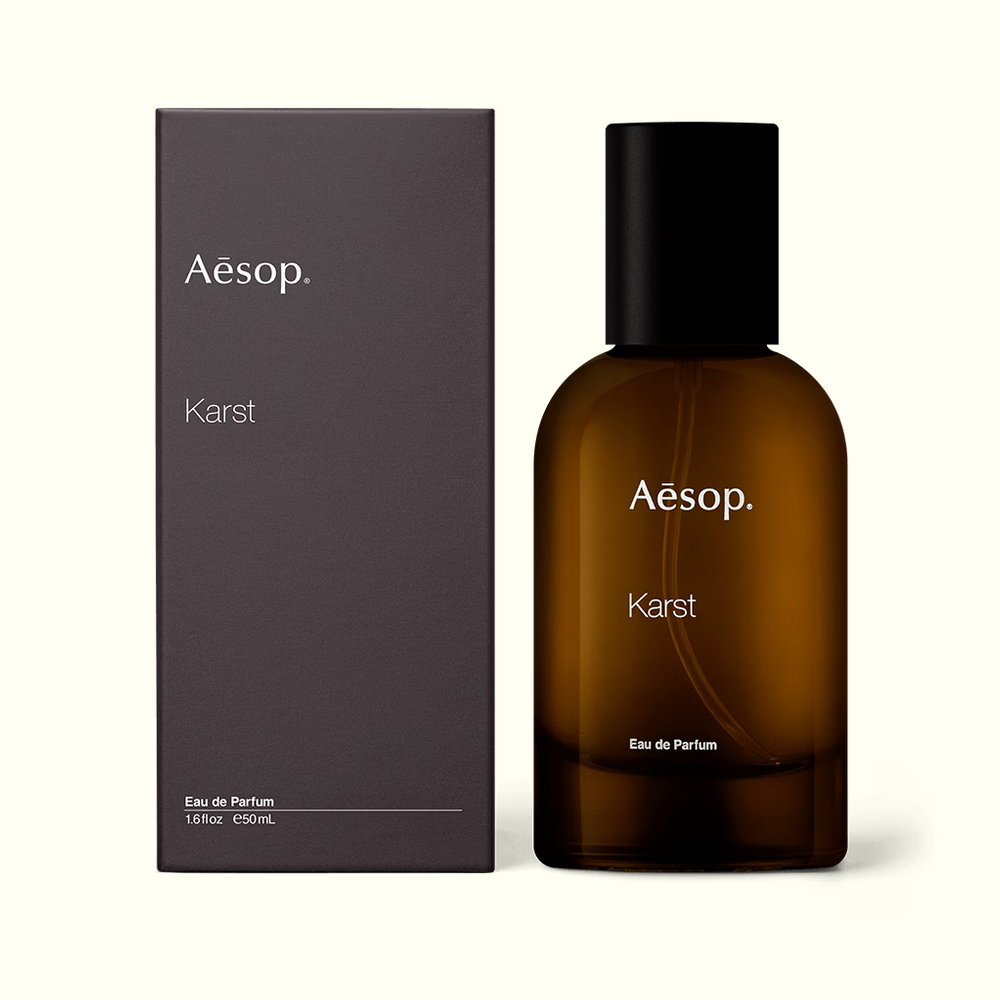
Years ago, I walked into an African shop in my hometown, searching for oils to not only burn but to also dab on the warmest points of my skin. I have never been a big perfume wearer; put off by the overpowering cloud of Chanel fragrances and how synthetic the sillage smelled. But last year, I, like so many others, became drawn to the cult-ish L’Oreal-owned Aesop fragrance.
Aesop, an Australian-founded skin care and fragrance brand, is known for their essential oil formulations lulled with patience and science. Unlike other brands, including their competitor Le Labo, Aesop has less concentrated eau de parfums developed by their French nose, Barnabé Fillion. The stories behind the parfums, too, are designed to transport you to your personal fragrance-pilled utopia.
Among the six in their largest range, Othertopias – “a collection of bold and unorthodox fragrances inspired by liminal spaces” – is their fan-favorite, Karst. The moody aroma is reminiscent of cliffside vegetation, transporting the wearer to the stormy seashore through mineral top notes and metallic base accords.
When I first spritzed my wrists with the scent, I noticed it starts off smelling like a newborn baby and with a hint of fresh laundry. For the most pragmatic and existentialist of wearers, this fragrance is an internal conversation starter to put on as you dig your nose into a pocket-sized novel. It smells like you, a human with a breadth of life experience, rather than a hoarder of synthetic aromas fighting to be perceived.
But even then, Karst is a fragrance you can layer with other aromas, like the resinous Miraceti and floral Erémia, or the camphoric body scrub you bathed with the night before. No matter how you choose to wear it, Karst is certainly something your closest confidants will remember you by.






